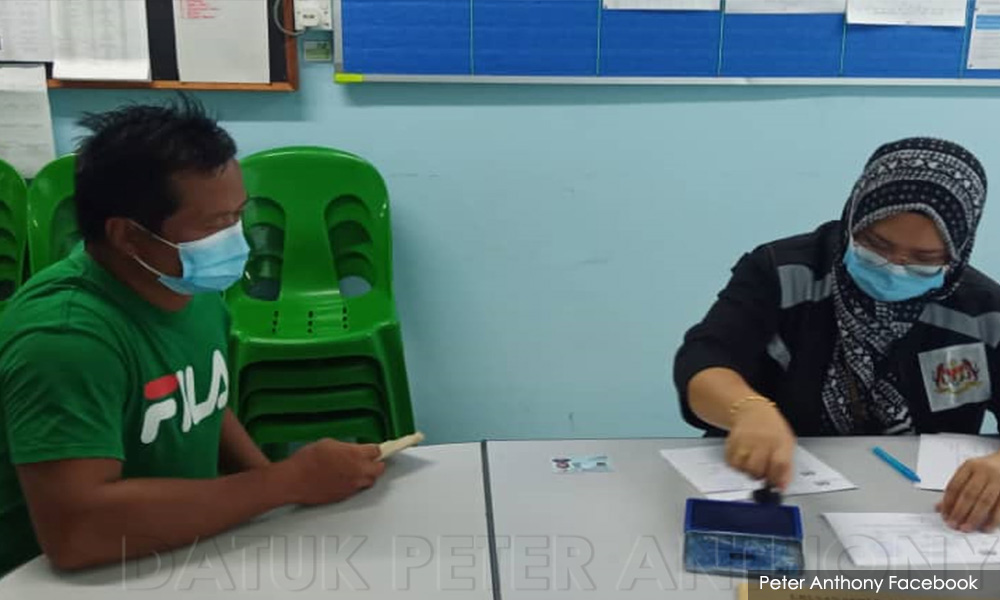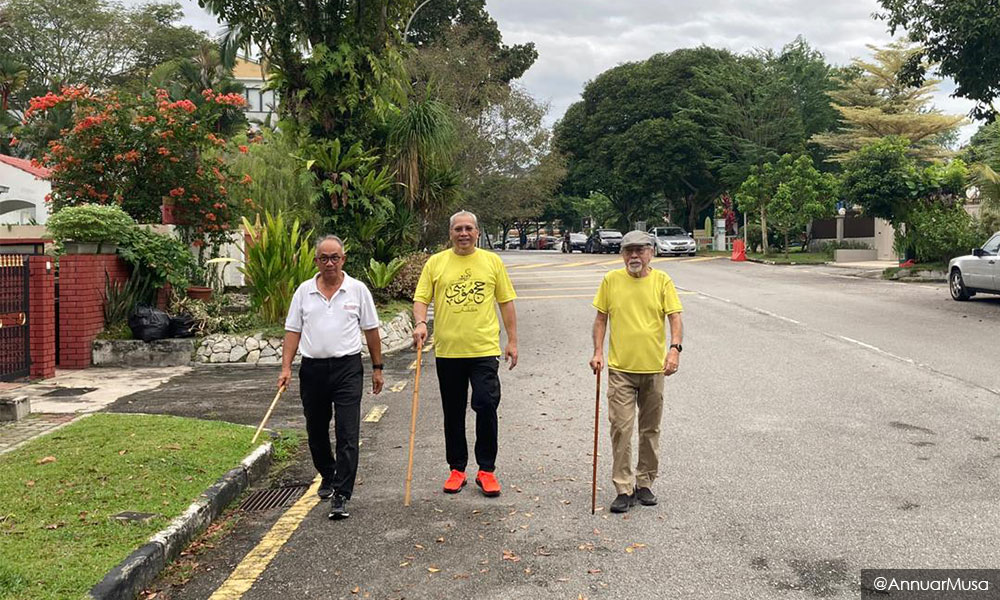Poor and you’ll get a fine, rich and you’ll be fine
Every bus ride to Tenom is a lonely journey. You don’t get to see much; the tarred roads are surrounded by green hills, high and low. The bus chases the clouds that are reaching for the sun, and before you could catch them, they disappear into the sky.
The gentle ray of yellow caresses your face and awakes you from your compensatory nap – the Tenom civilisation greets you again.
For the eight villagers, Tenom was everything. Without it, their families wouldn’t have survived. All of them could recognise the smell of local coffee like a familiar homegrown scent; most families have recounted the heroic stories of Ontoros Antanom, the true glory of the Men of the Hills (Murut); few would pass the opportunity to witness the majesty of the Tenom waterfalls.
But most of all, Tenom represented a lifeline. Irip Pang was rushing in the morning. She quickly tied her hair to a ponytail and carried her grandchild in a handmade sling of red, blue and black.
She knew that the bus to Tenom does not come by often, so she had run to catch up with the rest of the villagers. At the bus station, Buriat Alipan was already there. Nobody could remember the day he wasn’t holding his leg – his explanation to strangers of the origins of his condition and his sharp cry of pain are becoming trite.
When the bus finally arrives, the eight villagers stood closer to the curb so they could hop on immediately. All of them needed to get to Tenom come what may, the rules of courtesy for the elderly senior were suspended.

The bus driver, Ruil Taligi, recognised the villagers’ faces from afar. As his bus slows to a stop, his face grew uneasy. Immediately he waved the villagers off, saying that his bus could not take more than six people. Since the lockdown, a 50 percent capacity was the most he could go.
Irip was the first to beg. She rocked her disabled grandchild in her arms, who was half-asleep and told Ruil to let her on. “Milk and diapers,” she said. She insisted that she was not going to Tenom for fun. Her grandchild’s mother has long passed away, and Irip was the only dependant who could buy her essentials.
Buriat’s hurting leg is killing him. Tenom was the only place he could find the necessary medication to ease the pain. He understands what the new rules are, but he didn’t have a choice. Like Irip, he insisted he did not go to Tenom for fun.
Ruil hates to be put in these situations. He is a law-compliant man, but he is also sympathetic to the plight of these eight villagers. He looked ahead and back at them, and waved them into his bus.
They pleaded for sympathy
There are only two possibilities next: A roadblock or no roadblock. Travelling this road every day, Ruil knows that the latter option could be ruled out. Holding on to hope is foolish. So he started rehearsing his pleading lines to the police in his head. Milk, diapers, medicine, food, not for fun…
As he drove to the police roadblock, he looked at his rear-view mirror to see the eight villagers on board, beefing up his confidence to explain to the authorities.
Load limit exceeded. That’s indisputable. But it was unintentional. Ruil pleaded for sympathy, explaining that the villagers were poor and needy. The purpose of bypassing the rules was to secure supplies which are not available from where they stay. Surely urgency and necessity create exceptions to the rules.
Sensing the police were unpersuaded, Ruil suggested for the fine to lay on him alone. They were poor people and only wanted to buy essentials, he said.
The rules are rules, the police insisted. At the police district headquarters, all eight villagers and the bus driver received an RM1,000 fine for breaching the movement restrictions. No amount of begging makes a difference. Desperation and poverty are not persuasive.

A week earlier, Federal Territories Minister Annuar Musa strolled along a tarred road of Kuala Lumpur with his old friends in DBKL and Kelantan Football Association. In a time like this, the casual congregation without social distancing and face masks raised a red flag. Surely this is a breach deserving of punishment?
“No issue,” the minister waved it off as a brief encounter undeserving of attention.
But the eight villagers had no time to worry about double standards. They started the day worrying about milk, diapers, and medicine. Now they have to worry about the RM1,000 fine.
Before tears could flow down their faces, the dark clouds split into two – and it started pouring.
JAMES CHAI is a legal consultant and researcher working for Invoke, among others. He also blogs at jameschai.com.my. You may reach him at jameschai.mpuk@gmail.com. - Mkini
The views expressed here are those of the author/contributor and do not necessarily represent the views of MMKtT.
✍ Credit given to the original owner of this post : ☕ Malaysians Must Know the TRUTH
🌐 Hit This Link To Find Out More On Their Articles...🏄🏻♀️ Enjoy Surfing!




















Post a Comment